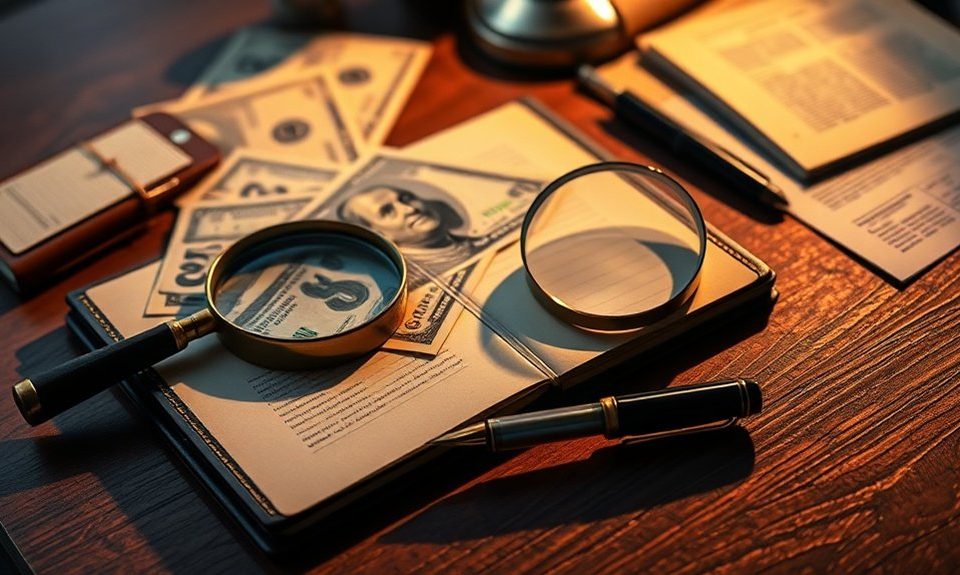In the field of private investigations, the pursuit of truth often relies on the collection of substantial evidence. This article examines the concept of substantial evidence, emphasizing various types and methods for its effective gathering.
The discussion will cover a range of techniques employed by professionals, including conducting interviews, performing surveillance, and utilizing advanced forensic technology. Additionally, legal considerations and challenges that may arise during this meticulous process will be addressed.
This exploration aims to illuminate the essential elements of collecting compelling evidence that holds up in a court of law.
What is Hardcore Evidence?
Hardcore evidence refers to tangible information that is essential for supporting a claim or establishing facts in both civil and criminal investigations. This type of evidence plays a critical role in legal proceedings by ensuring that relevant investigative methods conform to documentation standards and legal compliance, thus influencing the outcome of a case.
Types of hardcore evidence include:
- physical evidence
- forensic evidence
- witness statements
- and other relevant materials, all of which significantly contribute to the overall documentation and analysis of the case.
Types of Hardcore Evidence
There are various types of substantive evidence that can be utilized in an investigation, each serving a distinct purpose in the process of evidence gathering and legal compliance. Physical evidence, such as fingerprints, weapons, and other tangible items, can be critical, while forensic evidence employs scientific analysis to strengthen a case. Digital forensics and audio surveillance provide essential insights when analyzing digital data and recorded conversations, respectively.
Each of these types of evidence plays a vital role in private investigations and legal proceedings. Physical evidence often serves as a foundational element, as it can establish the occurrence of a crime and assist in tracing the actions of individuals involved. Forensic evidence enhances this by utilizing advanced technologies and methodologies, such as DNA analysis, to offer unparalleled specificity regarding identity and timelines.
Furthermore, digital forensics has become increasingly critical in today’s technology-driven society, uncovering vital information from devices such as smartphones and computers, which can illuminate communication patterns and intent.
Collectively, these types of evidence not only enhance the integrity of investigations but also improve the likelihood of successful outcomes in court, thereby ensuring that justice is served effectively.
How to Gather Hardcore Evidence in Private Investigations?
Collecting substantial evidence in private investigations necessitates a systematic approach, utilizing a range of investigative methods and surveillance techniques to ensure comprehensive evidence acquisition.
Private investigators typically employ a combination of witness interviews, digital forensics, and field investigations to construct a robust case, all while maintaining adherence to ethical standards and legal regulations.
The success of these endeavors is contingent upon the proficient implementation of evidence-gathering strategies, which may include covert operations and the deployment of advanced surveillance equipment.
1. Conducting Interviews and Interrogations
Conducting interviews and interrogations is a critical component of evidence gathering in private investigations, as it involves extracting essential information from witnesses and subjects. The application of effective interview techniques and deception detection methods can significantly improve the quality of insights obtained during investigative interviews, ultimately leading to a more comprehensive understanding of the circumstances involved.
To accomplish this, it is essential to prioritize the establishment of rapport with the interviewee, as a comfortable environment often results in more candid responses. The use of open-ended questions encourages dialogue and allows individuals to share their narratives more freely, thus revealing layers of information that may be concealed by closed questions.
Furthermore, mastering the ability to recognize behavioral cues, such as body language and shifts in vocal tone, can provide investigators with valuable insights into the truthfulness or deception of the subjects. By integrating these best practices, investigators not only enhance their evidence-gathering techniques but also improve the overall effectiveness of their investigative methods, ensuring a more thorough exploration of the facts.
2. Surveillance and Observation
Surveillance and observation are essential elements of private investigations, employing a variety of techniques to gather substantial evidence in a discreet and efficient manner. Methods such as video surveillance, GPS tracking, and covert operations enable private investigators to monitor subjects and collect pertinent data without raising suspicion, thereby preserving the integrity of the evidence chain of custody.
These techniques offer distinct advantages based on the specific investigative circumstances, ranging from tracking an individual’s movements to capturing real-time activities. Video surveillance can provide visual documentation of behaviors and interactions, which is particularly important in cases involving infidelity or fraud. Additionally, GPS tracking facilitates detailed mapping of journeys, proving invaluable in investigations concerning missing persons or activity patterns.
As private investigators integrate these advanced technologies into their practice, it is crucial to navigate the complex landscape of legal compliance and ethical standards. This approach is vital for maintaining public trust and safeguarding individual privacy. Balancing innovation with responsibility is essential, especially as the field continues to evolve alongside emerging technologies.
3. Gathering Physical Evidence
Gathering physical evidence is essential in private investigations, as it serves as the foundation of a robust case by providing tangible proof that can be analyzed and presented in court. Employing effective evidence collection methods, such as crime scene analysis and forensic analysis, is crucial to ensuring that physical evidence is preserved and documented in accordance with stringent standards, thereby maintaining its admissibility in legal proceedings.
To accomplish this, investigators must employ a variety of techniques, including meticulous documentation, photography, and the secure collection of items such as fingerprints, fibers, and biological samples. Forensic science plays a pivotal role in the analysis of this evidence, utilizing advanced technologies such as DNA sequencing and digital forensics, which enhance the ability to establish connections between suspects and crime scenes.
Maintaining a reliable chain of custody is vital; every individual who handles the evidence must be documented to prevent compromise or tampering. By adhering to these essential procedures, investigators can strengthen their cases and uphold the integrity of the legal process.
4. Using Technology and Forensic Tools
The integration of technology and forensic tools has fundamentally transformed the field of private investigations, enabling investigators to gather substantial evidence with greater efficiency and effectiveness. From digital forensics that analyze online data to advanced data analysis methods, these tools play a crucial role in ensuring comprehensive evidence review and enhancing overall investigative strategies.
Private investigators now have access to sophisticated software capable of analyzing vast amounts of data, thereby revealing patterns and connections that may otherwise remain undetected. With the emergence of mobile device forensics, investigators can extract critical information from smartphones, capturing essential communications and location histories.
Surveillance technologies, such as drones and high-definition cameras, introduce a new level of discretion in evidence gathering, allowing for unobtrusive documentation of suspicious activities. Remaining informed about the latest advancements in these technologies is essential, as it enables investigators to adapt their methodologies, comply with evolving industry standards, and sustain a competitive advantage in the rapidly changing landscape of private investigation.
Legal Considerations for Gathering Hardcore Evidence
Legal considerations are of utmost importance when collecting substantial evidence, as compliance with regulations and adherence to legal standards significantly affect the admissibility of the evidence in court.
Investigators must possess a thorough understanding of privacy laws and the protocols related to the chain of custody for evidence to ensure that the information collected can endure scrutiny during legal proceedings.
1. Admissibility in Court
Admissibility in court is a fundamental aspect of any legal proceeding, as it determines whether the evidence collected during an investigation can be presented before a judge or jury. Several factors influence court admissibility, including the methods employed for evidence preservation, compliance with documentation standards, and the overall credibility of the investigative reports generated.
Equally significant are the legal principles that govern the types of evidence considered, such as relevance, reliability, and adherence to established procedural rules. For instance, physical evidence must be collected in a manner that prevents contamination, while testimonial evidence necessitates that witnesses possess firsthand knowledge of the events in question.
Maintaining a proper chain of custody is essential to demonstrate that the evidence has not been tampered with or altered since its collection. These stringent criteria emphasize the critical importance of meticulous evidence handling in ensuring a fair trial and upholding the integrity of the judicial system.
2. Privacy Laws and Regulations
Understanding privacy laws and regulations is essential for private investigators, as non-compliance can result in legal repercussions and adversely affect the integrity of their findings. This encompasses a thorough awareness of surveillance laws and the ethical considerations that must be addressed when conducting security assessments and gathering evidence.
The landscape of privacy legislation is continuously evolving, incorporating various frameworks such as the General Data Protection Regulation (GDPR) in Europe and the California Consumer Privacy Act (CCPA) in the United States, both of which impose stringent guidelines on data collection and individual rights.
In their pursuit of information, private investigators must navigate these laws meticulously to avoid infringing upon personal privacy rights. Ethical practices should be prioritized to ensure that all evidence gathered is obtained in a manner that upholds moral integrity.
Remaining informed about these changing regulations is not only a legal obligation but also crucial for building trust with clients, as compliance helps maintain a strong reputation within the industry.
Challenges and Limitations of Gathering Hardcore Evidence
The process of gathering substantial evidence presents numerous challenges and limitations that can affect the efficacy of private investigations. Common obstacles include constraints related to time and resources, difficulties in engaging with uncooperative subjects, and the critical importance of maintaining the chain of custody for all collected evidence.
Each of these factors can have a significant impact on the ability to obtain credible and admissible evidence.
1. Time and Resource Constraints
Time and resource constraints frequently present significant obstacles in the collection of critical evidence, as investigators must operate within limited budgets and timelines while simultaneously managing multiple cases. Effective case management and strategic planning are essential for maximizing the efficiency of evidence gathering in such circumstances.
In this challenging environment, prioritizing investigative tasks is paramount. By assessing which cases necessitate immediate attention and which can be addressed at a later stage, investigators can allocate resources more effectively.
For example, prioritizing high-stakes cases ensures that critical evidence is not overlooked, while less urgent matters can be pursued concurrently. Utilizing technology and streamlining communication among team members can enhance workflow, facilitating quicker responses to emerging developments.
Ultimately, adopting a structured approach to case management not only improves the capacity to gather vital evidence but also contributes significantly to overall investigative success.
2. Dealing with Uncooperative Subjects
Dealing with uncooperative subjects can present significant challenges during the evidence-gathering process, often complicating investigative interviews and witness statements. The application of effective interrogation techniques and strategic communication can help to mitigate these obstacles and enhance the quality of the information obtained.
To navigate these situations successfully, it is essential to implement strategies that prioritize active listening and rapport-building. Initiating conversations with empathy allows the interviewer to gain insight into the subject’s perspective, thereby fostering a more conducive environment for dialogue. Incorporating open-ended questions encourages subjects to share more freely, which can help to reduce their defensiveness.
Patience is of paramount importance; allowing subjects the necessary time to articulate their thoughts can yield valuable insights. Additionally, being adaptable by modifying tactics in response to the subject’s replies ensures that communication remains fluid and focused, ultimately leading to more productive exchanges.
3. Maintaining Chain of Custody
Maintaining the chain of custody is essential for ensuring the integrity and admissibility of critical evidence collected during investigations. This process requires strict adherence to documentation standards and evidence preservation protocols, which are vital for demonstrating the legal compliance of evidence in court.
When investigators meticulously track each piece of evidence, they establish a reliable narrative that safeguards against claims of tampering or mishandling. Best practices include utilizing evidence tags, maintaining a detailed log of who accessed the evidence and when, and ensuring secure storage conditions.
Failure to uphold these standards can compromise cases, resulting in evidence being deemed inadmissible, which ultimately jeopardizes the entire legal process. By prioritizing these protocols, legal professionals can significantly enhance the likelihood of a favorable outcome, as a well-documented chain of custody bolsters the credibility of the case presented before a judge and jury.
Frequently Asked Questions
What is gathering hardcore evidence in private investigations?
Gathering hardcore evidence in private investigations refers to the process of collecting concrete and irrefutable proof during an investigation. This evidence can be used in court or other legal proceedings to support a case or argument.
Why is gathering hardcore evidence important in private investigations?
Gathering hardcore evidence is crucial in private investigations because it provides solid proof to support a case or argument. This type of evidence is more reliable and convincing than circumstantial evidence, making it essential in legal proceedings.
What are the different types of hardcore evidence used in private investigations?
The different types of hardcore evidence used in private investigations include physical evidence (such as documents, photos, and videos), testimonial evidence (such as witness statements), and digital evidence (such as emails, texts, and social media posts).
How do private investigators gather hardcore evidence?
Private investigators use a variety of methods to gather hardcore evidence, including conducting surveillance, conducting interviews and interrogations, and using various investigative techniques such as background checks and forensic analysis.
Can gathering hardcore evidence be illegal?
No, gathering hardcore evidence is not illegal as long as it is obtained legally and ethically. Private investigators must follow all laws and regulations when collecting evidence, and any evidence obtained through illegal methods will not be admissible in court.
How can I ensure the integrity of gathered hardcore evidence in a private investigation?
To ensure the integrity of gathered hardcore evidence, it is important to document the chain of custody and maintain accurate and detailed records of how the evidence was collected, handled, and stored. This will help to prevent any challenges to the authenticity of the evidence in legal proceedings.






